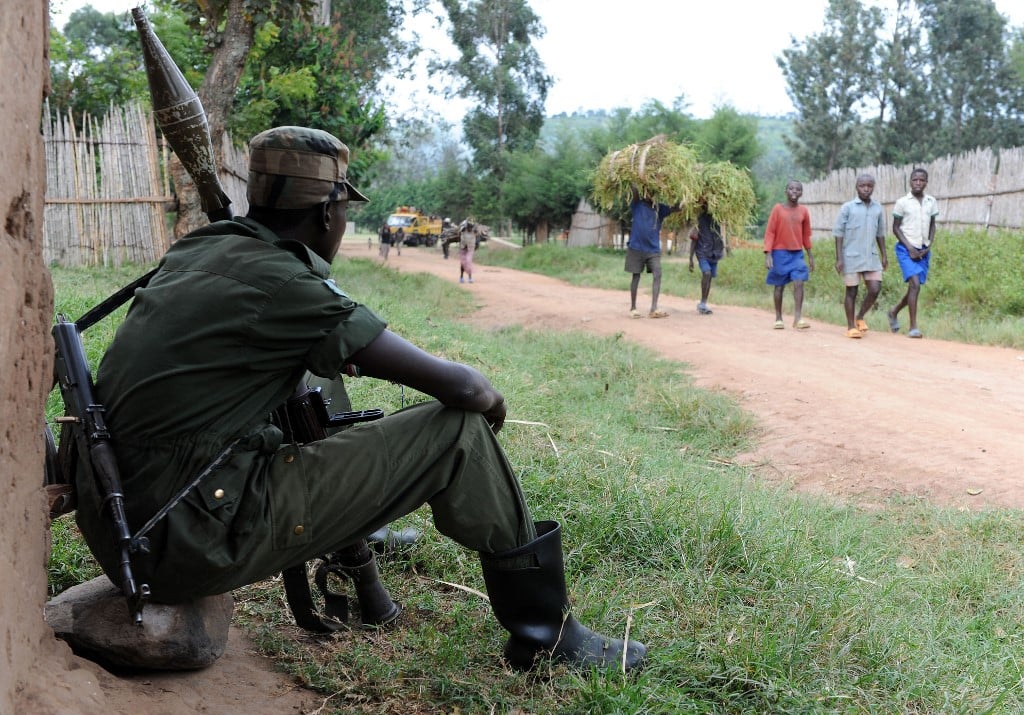Lack of details around the Democratic Republic of Congo government’s claim to have dismantled a security threat early this month have led to conflicting opinions over whether a plot to overthrow the government really existed.
The government said it found “serious evidence” of a national security threat after arresting François Beya, one of DRC’s most influential intelligence figures with links to former President Joseph Kabila on 5 February.
Beya, who was a special security advisor to President Félix Tshisekedi, held influential positions in the former regimes of Mobutu Sese Seko, Laurent-Désiré Kabila and Joseph Kabila. He is reportedly still being held at the headquarters of the National Intelligence Agency (ANR) in Kinshasa.
More than a week after his arrest 5,000 heavily armed members of the national army walked through the streets of the capital city in a show of force, but the government has not released any further information on the supposed perpetrators or their possible motives.
“There is not any official announcement from the government about who is responsible for the coup. The only announcement comes from the president’s spokesman to just confirm that his main security advisor [Beya] has been arrested,” said a Kinshasa-based official working in the mining sector, who chose to remain anonymous.
The lack of information has led to speculation that the existence of a plot against the government was manufactured by the authorities in a bid to remove Beya from his position of influence.
“Beya has been becoming a pest to Tshisekedi. He was more or less the last remnant of the Kabila regime and he was proving near impossible to oust. I’ve said for a long time a coup attempt is super unlikely. And this remains true for now, I think,” says a DRC analyst, on condition of anonymity.
After rising to power in a controversial 2018 election, Tshisekedi has sought to aggressively dismantle the power structures tied to the former president Kabila who has spent much of his time in South Africa since he stepped down.
Despite winning the vote, Tshisekedi has faced a Kabila-linked majority in the national assembly and his critics accused him of cutting a deal with the former president to snatch victory from official opponent Martin Fayulu.
But recent political manoeuvres suggest that Tshisekedi is continuing to break away from Kabila’s grip, a trend which has been ongoing since he came to power.
In December, he announced the end to a coalition with the former president’s supporters following a prolonged deadlock.
Earlier this month, lawmakers elected a speaker of the house who was loyal to Tshisekedi after a lengthy battle to remove the former speaker Jeanine Mabunda, a Kabila ally.
This follows the removal of prime minister Sylvestre Ilunga Ilunkama, another Kabila-linked politician, after a vote of no confidence.
“I think the political and security situation in Kinshasa is uncertain. Some of the key players of the majority coalition have been pushed out. But can just one person really organise a coup? That leads us to think that is just a struggle around power,” says the Kinshasa resident.
Security issues
After decades with very few coups, Africa has recently been rocked by a wave of undemocratic takeovers. There have been seven coups and coup attempts across Africa in the last 18 months.
Military leaders in Burkina Faso, Chad, Guinea, Mali and Sudan succeeded in seizing power while they failed in Niger and Guinea-Bissau.
This has led analysts to fear that disenfranchised political parties and personalities may feel emboldened to steal power across the continent, raising the risk in the DRC.
Meanwhile, conflict continues in eastern DRC. Tshisekedi had promised to bring peace to the region but state-led initiatives have seen muted results, with Islamist groups like the Islamic State-linked Allied Democratic Forces (ADF) growing in strength. In February Islamic State claimed responsibility for freeing around 20 prisoners during an attack in eastern DRC’s North Kivu province, according to SITE Intelligence Group.
DRC economy looks strong
Despite the ongoing security issues and a possible coup plot, the DRC’s economy is expected to grow significantly this year after a slight pandemic-related dip.
The IMF predicts growth of 6.2% in 2022, bolstered by increased demand for cobalt and copper.
The DRC is the largest exporter of cobalt worldwide and the fifth largest exporter of copper.
Reserves in the central bank jumped from $800m in 2020 to $3.3bn in October 2021, thanks to increased payments from Chinese buyers and $1.4bn worth of IMF special drawing rights (SDRs).
The DRC is also close to being accepted into the East African Community (EAC), which should unlock significant economic opportunities for the eastern part of the vast country.
Want to continue reading? Subscribe today.
You've read all your free articles for this month! Subscribe now to enjoy full access to our content.
Digital Monthly
£8.00 / month
Receive full unlimited access to our articles, opinions, podcasts and more.
Digital Yearly
£70.00 / year
Our best value offer - save £26 and gain access to all of our digital content for an entire year!
 Sign in with Google
Sign in with Google 



